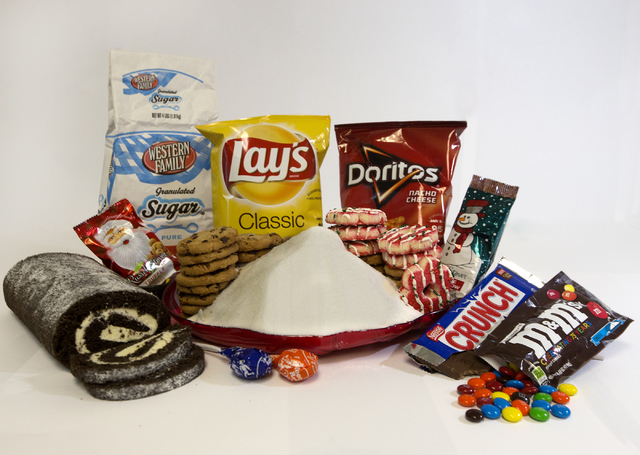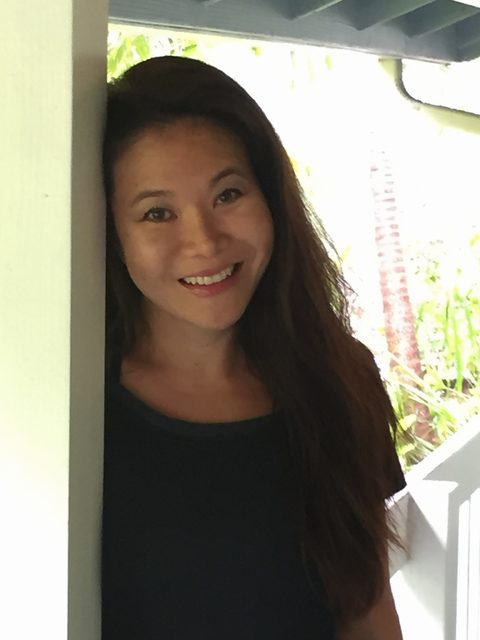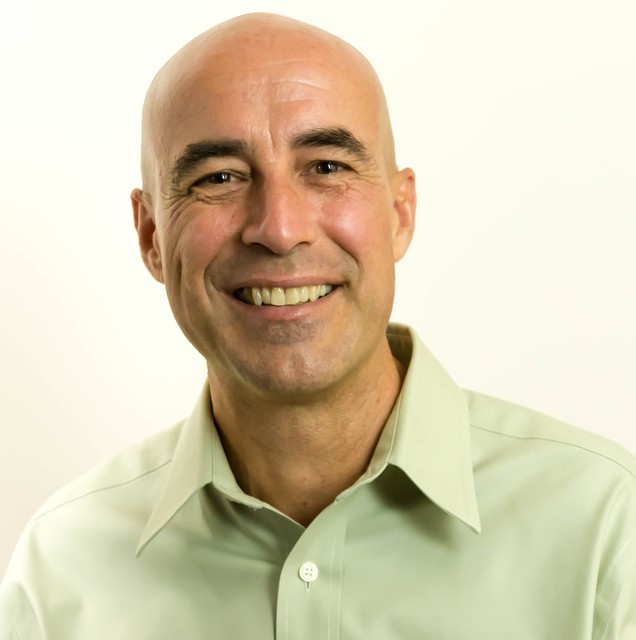EDITOR’S NOTE: This story has been updated to include correct information about the food plan that OA members follow. For many who attend meetings and say they’re successfully managing their addiction, treatment entails a food plan, though that food plan is an individual’s choice.
PAHOA — “Do you guys mind if I eat my lunch?”
It’s nearing lunchtime one recent afternoon when Andrea (name has been changed to protect her identity), sprawled at a table in the cozy meeting room in Pahoa, poses the question to the handful of fellow Overeaters Anonymous members seated around her.
It might seem a bit odd to ask for permission to eat. It also might seem odd to pull out food in the middle of a meeting.
But for Andrea, a self-diagnosed compulsive overeater, sticking to planned meals, strict portions and specific food items is essential.
If she stops measuring, those portions get bigger and bigger. If she goes too long without eating, cravings — particularly for refined sugars and flour — set in. And those cravings, she explains, can lead to indulging which triggers full-out binging, ultimately leading to “incomprehensible demoralization and self-hatred.”
Since this isn’t a formal meeting (members gathered specifically for an interview with the Tribune-Herald), Andrea gets the OK to eat.
“Gaining weight is the least of it,” Andrea said, pulling out an apple, cheese slices and other protein-rich super foods strategically packed away in her lunchbox. “It’s the mental part of it. And for me, what’s working for me, is this — knowing, ‘OK, this is what you’re going to eat, this is how many ounces of protein and this is how many ounces of vegetables.’ Because it makes me feel safe. Now, instead of feeling guilty about it like I used to for so many years, I understand that I have this condition called compulsive overeating, and I’m not alone.”
Andrea is among an estimated 3 million Americans who say they have a binge eating disorder, regarded by many experts as the most common eating disorder in the country.
It’s hard to say how many Hawaii residents are compulsive overeaters — a term often used interchangeably with binge eating — though about 57 percent of adults in the state are overweight or obese, according to data recently released by the state Department of Health.
Francois Benoist, founder of Honokaa-based The Exclusive Addiction Treatment Center, which touts itself as a “holistic, residential recovery center,” says about 25 percent of the center’s 100 yearly clients “have some kind of issue with food.” About 50 percent of clients as a whole hail from Hawaii, Benoist said, and the remainder are from out of state.
And Honolulu-based family therapist Bethany Crowley said up to 60 percent of the roughly 300 clients she sees each year for eating disorders struggle specifically with binge eating. She thinks the problem remains somewhat undiagnosed among many of Hawaii’s residents due to its more “relaxed” culture.
“People here … maybe don’t have so many judgments with body image,” Crowley said. “On the mainland, there’s the media and Hollywood — (being overweight) is more tolerated here. In Hawaii, I think it’s less of a concern and maybe not looked on as an issue as much as in the states.”
Overeaters Anonymous members are self-diagnosed. Members attend meetings at thousands of chapters around the globe, including at least three in the East Hawaii area. The support group operates under a strict anonymity policy and follows the 12-step program first popularized by Alcoholics Anonymous.
“Anyone who wants to stop eating compulsively” is welcome, one member said, and the group requires no formal dues, fees or membership. For many who attend meetings and say they’re successfully managing their addiction, treatment entails a food plan, the help of a sponsor and attending regular meetings for support.
“We know that we have a compulsive addiction and that is abnormal eating habits,” a member said.
“Most of us can’t have certain foods around or can’t stop.”
Some experts are skeptical of the approach. For example, Crowley looks at OA as a “good support network” to meet others “with something in common” but thinks binge eating requires help from a professional. She equates abstaining to “white knuckling it.”
“With (Alcoholics Anonymous) if you have that urge to drink you talk to a sponsor, but food doesn’t work that way,” she said. “You have to eat. So we know eating disorders are a different addiction than drugs and alcohol. With food, you’re addicted to the process.”
Membership at the Pahoa OA meetings fluctuates each week, members said. Some share extensively while others mostly listen. One member Donna (not her real name) said it took her years to begin sharing much of anything. When she first started attending she was “so defensive” that “no one could say anything to me.”
Donna said she’s struggled with food addiction for years and said the OA approach is just about all that has worked. She’s now removed what she calls “trigger foods” from her diet — for example, she doesn’t eat any type of sugar “except in the form of fruit.”
“I don’t even eat ketchup,” she said. “For me, it’s just kind of a no-brainer.”
Members admit there are times when sticking to a strict meal plan is difficult. For example, traveling to another country — and being forced to pass on tempting new cuisine — requires additional self-control. Or being offered alluring goodies at a holiday gathering.
But Andrea said ultimately adhering to the program is worth it and has eliminated “that back and forth nut-so-ness in my head.” She’s also lost more than 40 pounds and says she feels “free in my mind to be me and live life.”
“It’s more fun to go out and wear clothes and all those things, and my health is better,” Andrea said. “But the biggest benefit for me is the day-to-day peace of mind that I have inside my own head. That I can feed myself nutritious food without opening up this floodgate of negative thinking that comes from behaviors I can’t control. So OA has been a godsend. It’s really nice, and I now know the world is full of compulsive overeaters.”
Email Kirsten Johnson at kjohnson@hawaiitribune-herald.com.








